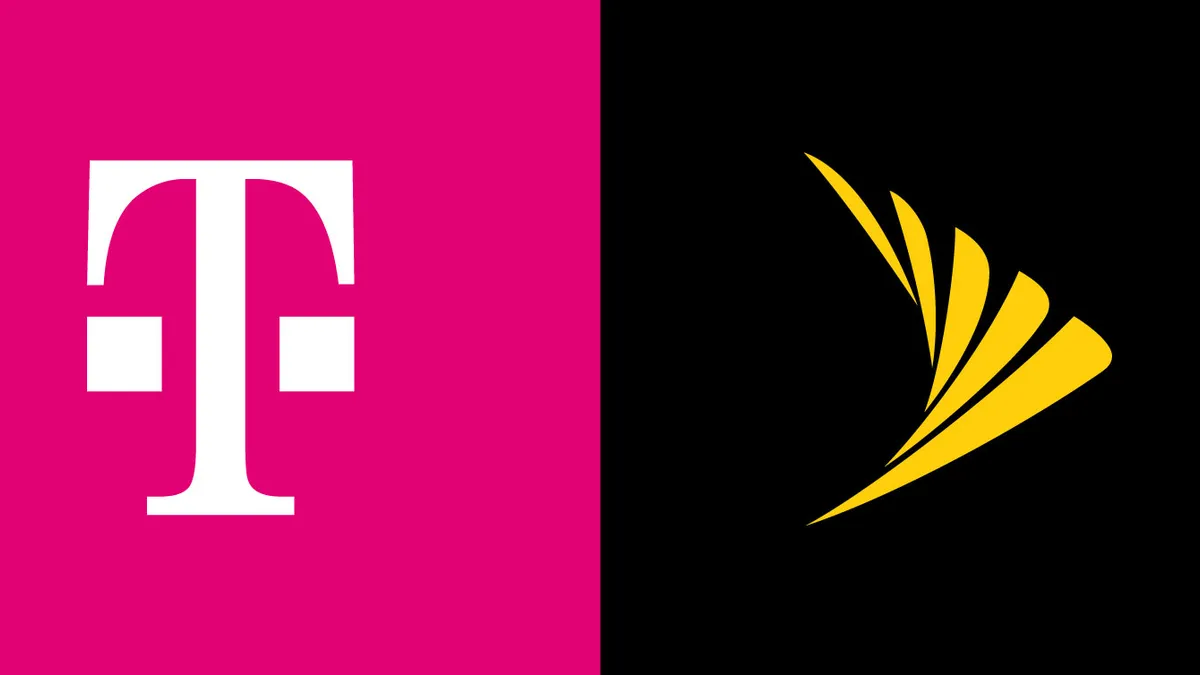Dive Brief:
- The Federal Communications Commission (FCC) has approved a proposed merger of Sprint and T-Mobile by a 3-2 margin. Commissioners Jessica Rosenworcel and Geoffrey Starks voted against the plan, while Commissioners Brendan Carr and Michael O'Rielly joined Chair Ajit Pai in voting for it. The FCC is set to release an official order approving the deal soon.
- Opponents of the deal continue to predict higher prices for consumers, while proponents say it will make 5G rollout even quicker and create a strong telecom competitor to Verizon and AT&T.
- With this approval and the assent of the U.S. Department of Justice (DOJ) earlier this year, the deal has all the regulatory approvals necessary to proceed. It still needs to clear a lawsuit brought by multiple state attorneys general before the merger can officially close.
Dive Insight:
The FCC's approval of this deal represents one of the last major steps for T-Mobile and Sprint’s merger, but it is not without criticism. In a statement, Gigi Sohn, an ex-counselor to former FCC Chair Tom Wheeler, said the companies' "promises on 5G, rural buildout and in-home broadband are speculative, not specific to the merger and are completely unenforceable." Sohn also criticized "one of the most irregular and opaque processes in FCC history."
But supporters continue to insist the deal will benefit consumers. In a series of tweets, Carr said the merger would "mean faster speeds, more capacity, and better coverage," and said that "99% of Americans will get 5G on an accelerated basis." But that will do little to dispel opponents, including the state attorneys general, who have filed suit saying the deal would kill competition and undermine coverage in low-income areas. Some Senate Democrats are also on record opposing the deal.
From the companies' perspective, T-Mobile said the merger will help them accelerate 5G rollout and enable them to offer high-speed home internet, including to rural homes, with plans to deliver at least 100 megabits per second (Mbps) wireless broadband to 90% of the population and in-home service to half the country by 2024. For cities and rural communities, the merger could represent an opportunity to more quickly experience 5G, although it remains to be seen if the companies' promises and the supportive words from regulators will bear fruit.












